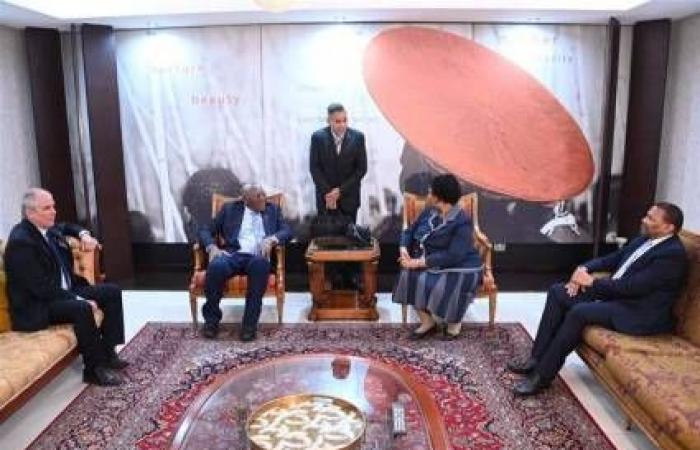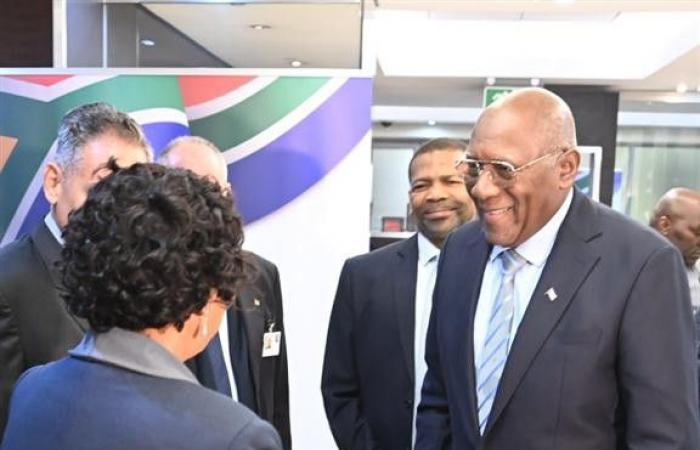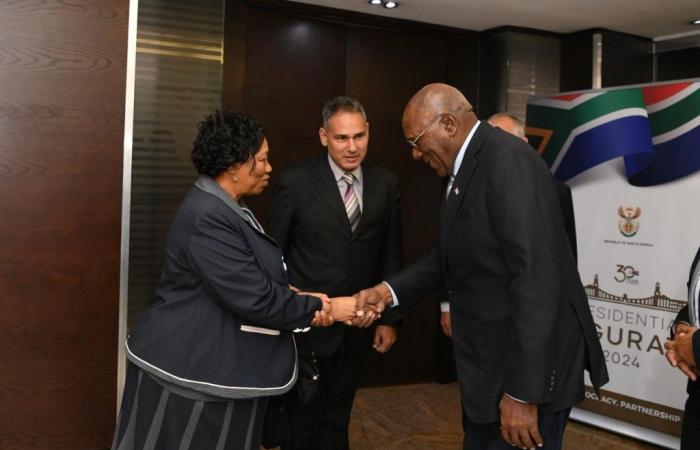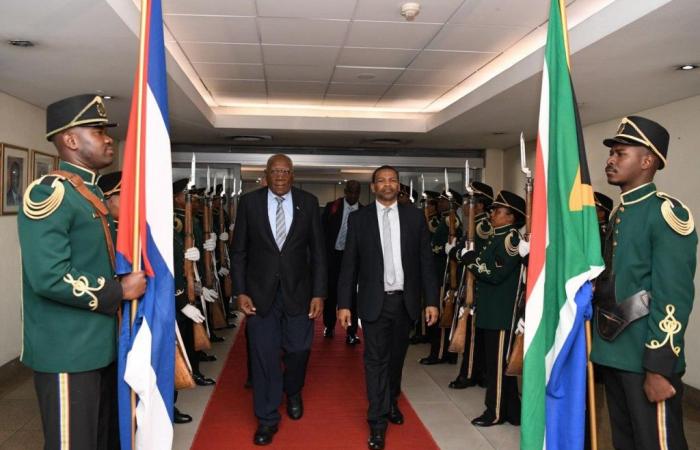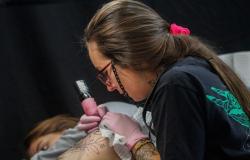JOHANNESBURG, South Africa, June 18. — The member of the Political Bureau and vice president of the Republic, Salvador Valdés Mesa, arrived in this city on Tuesday morning, local time, to attend the inauguration of President Cyril Ramaphosa, who begins his second term.
Ramaphosa is the fifth leader of the African National Congress (ANC) to have consecutively led the country since Nelson Mandela won historic elections in 1994 that ended the disgraceful apartheid, a regime that collapsed years earlier due to the struggle of the people of southern Africa and the Cuban internationalist troops.
Valdés Mesa was received upon arrival at the Oliver R. Tambo International Airport by Angie Motshekga, Minister of Basic Education.
It is the third time that the Vice President of the Republic of Cuba participates in this type of ceremonies in South Africa, in addition to having previously made other visits. In 2014 he represented the Greater Antilles at the inauguration of Jacob Zuma, and on May 25, 2019 he attended the first inauguration of Ramaphosa, with whom he had a meeting the next day.
According to press reviews from that time, the African president would say, regarding the exchange with Valdés Mesa, that “Cuba had been one of the special guests at the inauguration due to its outstanding role in the overthrow of apartheid and the excellent friendly relations.” and cooperation that unite the two countries.
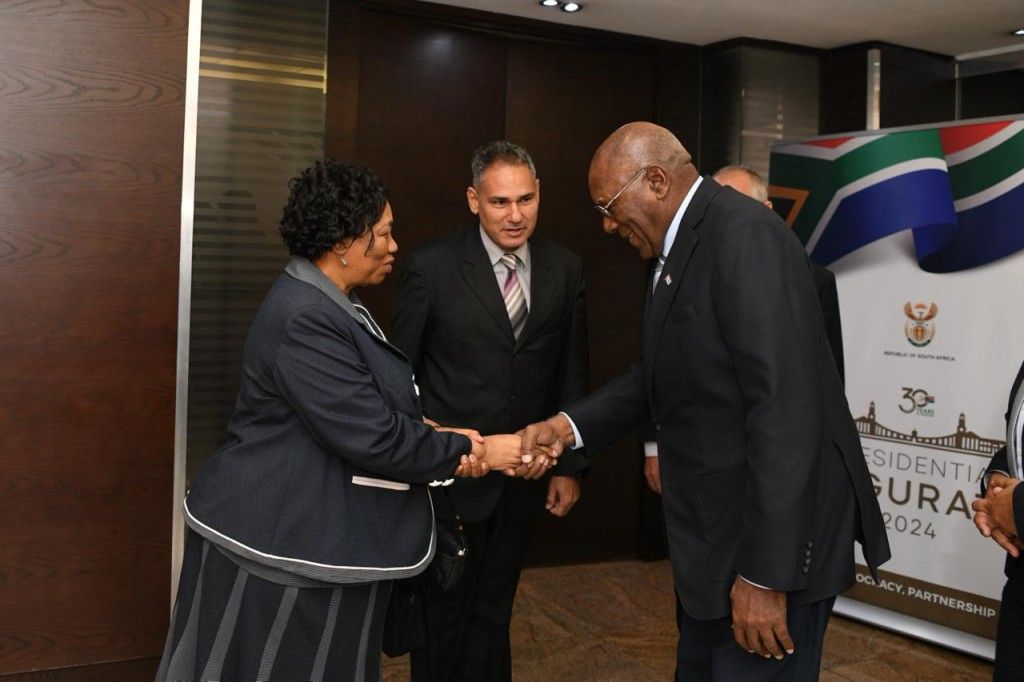
71-year-old Ramaphosa was re-elected on June 14 in Parliament for a second five-year term, after an unprecedented agreement with the party that has traditionally antagonized the ANC, the Democratic Alliance, whose majority base is the white population. .
The organizations agreed to work together in what they have called a government of national unity, of which the Inkatha Freedom Party is also a part.
It is a radical change in the South African political landscape. For 30 years, from 1994 to today, the ANC maintained the legislative majority, but in the seventh general elections, on May 29, although it won the elections, with 40.20 percent of the popular vote, it achieved only 159 of the votes. the 400 seats of the National Assembly.
After negotiations of about two weeks, the ANC agreed with the Democratic Alliance, which obtained 21.81 percent of the electoral vote and 87 seats; while Inkatha contributes 17 seats to the consensus.
CUBA IN SOUTH AFRICA
The establishment of diplomatic relations between Havana and Pretoria, on May 11, 1994, one day after Nelson Mandela’s inauguration, was the first foreign policy act of the new South Africa. It was led by Mandela and Commander in Chief Fidel Castro Ruz, who had arrived to attend the inauguration of his beloved brother.
On April 27, 1994, in the first multiracial elections, Mandela would become the country’s first black president (1994-1999).
The Cubans, he would say on one occasion, “shared the trenches with us in the fight against colonialism, underdevelopment and apartheid. Hundreds of Cubans gave their lives, literally, in a fight that was, above all, ours, not theirs.
Fidel’s two stays in South Africa in the 90s and another at the beginning of the century; those of Raúl in 2013, when he attended Mandela’s funeral; that of Díaz-Canel in 2023, on the occasion of the BRICS summit, and the visits to Cuba in different years, whether exercising the presidency or not, of Nelson Mandela, Thabo Mbeki, Jacob Zuma and Cyril Ramaphosa, are peaks of a relationship marked by a systematic exchange at the highest level in three decades.
The links, however, date back to the 60s of the last century. When Mandela and his companions were imprisoned at the beginning of that decade, Cuba made an international complaint in their defense. And since 1961, even before the trial in which Mandela was sentenced to life imprisonment, young South Africans who participated in the fight against apartheid began to arrive on the island to receive medical care or vocational training. In 1978 an ANC diplomatic office was established in Cuba.
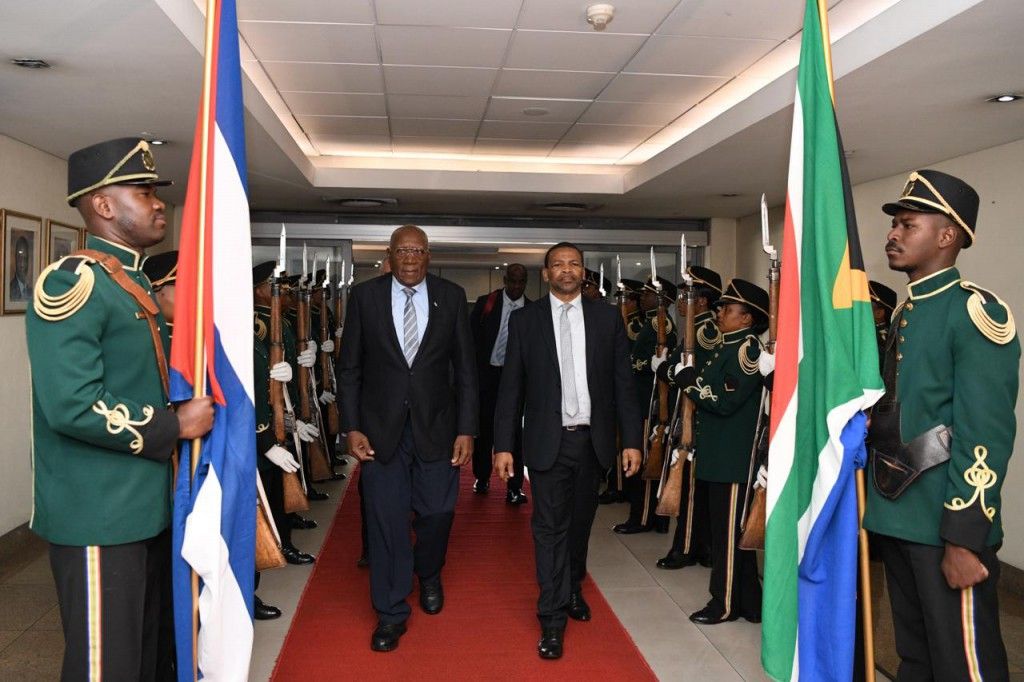
In his autobiography Long road to freedomMandela pointed out that in prison he found inspiration in Fidel Castro, Che Guevara and the Cuban Revolution.
On November 20, 1995, Cuba and South Africa agreed to the terms of cooperation in Public Health and Medical Sciences, which in 1996 began to materialize with the sending of 463 island doctors to work in rural areas.
From 1997 to today, thousands of Cuban Public Health professionals have provided assistance here, and more than two thousand young South Africans (2,210) have been trained in the Greater Antilles, centered on the Nelson academic training program. Mandela-Fidel Castro. Currently, 93 young South Africans are pursuing degrees on the Island.
Cooperation in the last 30 years also includes nearly twenty agreements between 2001 and 2022 in the scientific-technical sectors, maritime trade, art and culture, employment and social security, human settlements, development and social welfare, construction, defense, water resources and water supply, basic education, sports and recreation, information and communications technologies, postal services…
Currently, nearly 400 Cuban professionals cooperate in South Africa in various branches and the authorities of both countries have agreed on new agreements to expand cooperation. Relations are also supported by a joint bilateral commission, inter-chancellery meetings and other mechanisms.
The collaboration between Cuba and South Africa is considered a successful example of South-South cooperation that has a direct impact on the people of both countries and deepens their mutual appreciation and respect.

